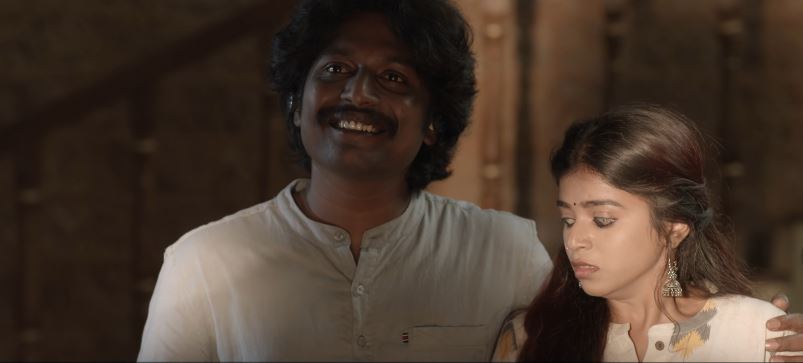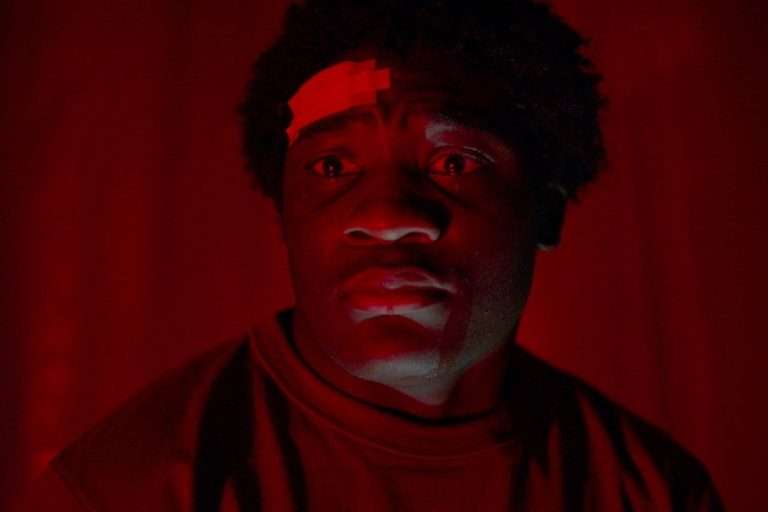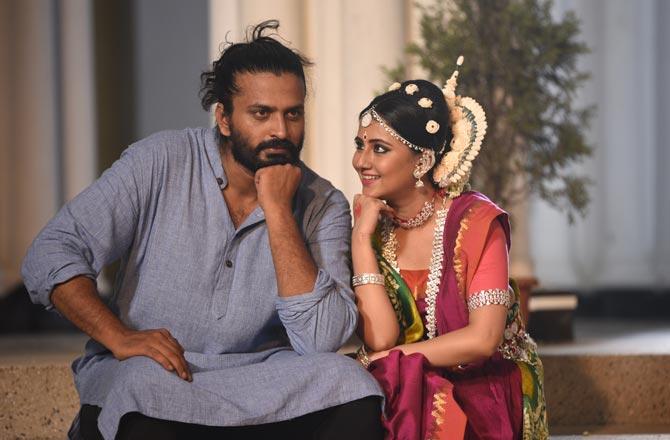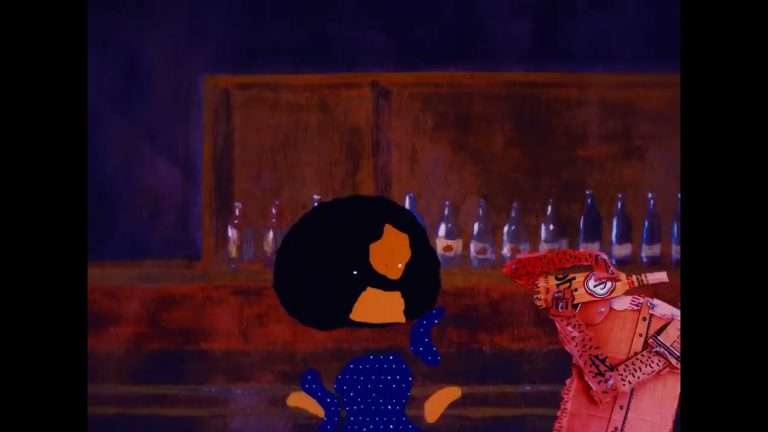Anurag Kashyap, in a mock interview, once said that if he was to make a love story, he would have two serial killers fall in love with each other while killing at the same alley. He cheekily called it ‘Khaach Khaach Hota Hain’, with ‘Khaach’ being the slashing and piercing sound of a knife. Clearly, this was a cleverly mocking reference to the iconic Bollywood romantic film ‘Kuchh Kuchh Hota Hain’. Meher Tej would seem to be channelling that same spirit while making this outrageously crazy film called ‘Family Drama’.
The phrase ‘Family Drama’ has itself become a subgenre in the subcontinental entertainment industry. Films and TV serials of this subgenre would have a primitive structure featuring a large family, which is common in subcontinental households. Brothers with their wives, living with the parents, in the same house. The familial conflicts, between in-laws mostly, are heavily dramatized in these shows. Just like ‘Khaach Khaach Hota Hain’, Meher Tej makes his ‘Family Drama’ as an audacious subversion of the genre of the same name.
The film starts with an ominous news clip showing a serial killer preying on hapless victims, as we are introduced to the ‘family’ of our story. The patriarch of the family (played by Sanjay Ratha) is an extremely ill-mannered father, who downright abuses, both verbally and physically, his wife (Sruti Meher) and younger son, Lakshman (Teja Kasarapu). He is the kind of character that is tailor-made to be murdered if you go by the golden age detective fiction. The older son, Rama (played by Suhas), is already banished by him.
Related to Family Drama – Aakashavaani (2021) Sonyliv Review: Highly Relatable And Unique Folk Story
From the beginning, it is of no mystery that this Rama is an unhinged psychopath. The film does not hide that. On the contrary, there is an unabashed celebration of the same. There is a scene where Rama tries to pay for confectionaries using joints as currency. From the get-go, it would cross the viewers’ minds that the city’s elusive serial killer is none other than Rama.
On the other hand, tired of his father’s constant abusive rants and torture towards himself as well as to his mother, Lakshman decides to give in to Rama’s idea of poisoning their father. Not to kill, but enough to paralyse the major decision-maker of the family. Grabbing the opportunity, Rama also decides to return to the house, with his wife. Now, all of these criminal activities are done unbeknownst to the brothers’ respective wives. Yamini (Pooja Kiran), married to Lakshmana, and Mahathi (Anusha Nuthula), the partner of Rama, have no clue regarding the real face and consequent dangers of their surroundings.
Also, Read – Raja Raja Chora [2021] Zee5 Review: A Fine Emotional Comedy About A Simpleton-turned-crook
Plaudits to Meher Taj for creating this madhouse of a tableau with eccentric detailing in-character writing. The crème de la crème is the writing of the character Rama. Without any doubt, Rama is one of the funniest and most terrifying serial killer characters written in Indian cinema. His passionate rants on music amp up the hilarity and the creepiness of the character. His sporadic and sudden outbursts of affection towards Carnatic devotional music is quite a thing to watch. At one point, a frame in the film would consist of the father grimacing in a wheelchair, Lakshmana trying to use a saw on a steel gate and Rama immersed in his world of music. It was a memorable frame indeed.
Resultantly, it is Suhas who gets the chance to shine as Rama; and he churns out a top-notch performance. Even when Rama is in public, hiding the killer within, there is always volatility etched on his face. Credit must be given to the actor for that. The rest of the actors get their chances and they do well respectively. Pooja Kiran and Anusha successfully portray the fear and shock as two outsiders who get caught up in the family drama per se.
The editing of the film deserves a special mention as well. The use of montage, especially while establishing Rama’s eccentricity, was to the point. Quick and yet seamless cuts help build the dark comedy tone; and kudos to Meher Tej for committing to the dark comedy tone and not dwindling towards any other tonal shifts. Many Indian thrillers or comedies often missteps and drown themselves between genres. ‘Family Drama’ successfully avoids that.



![Effigy: Poison and the City [2019] Review – 1800s set serial-killer thriller fails to engage](https://79468c92.delivery.rocketcdn.me/wp-content/uploads/2021/05/Effigy-Poison-and-the-City-1-768x415.png)
![Swallowed [2022]: ‘Fantasia’ Review: The Kind Of Messy Queer Horror We Need](https://79468c92.delivery.rocketcdn.me/wp-content/uploads/2022/07/Swallowed-768x405.jpg)


